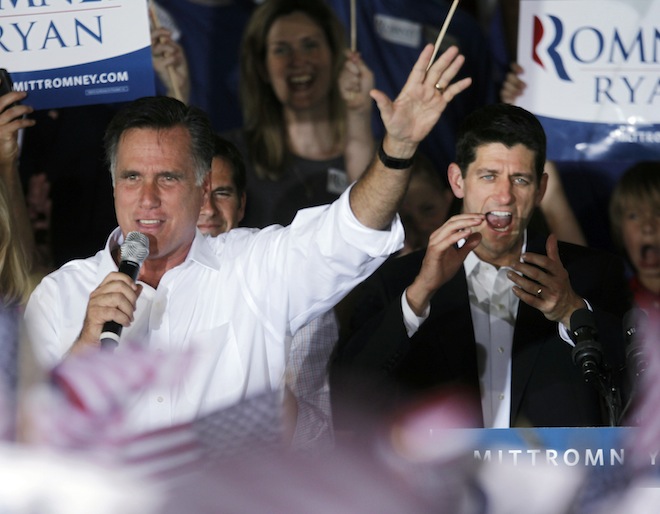Earlier this year, House Republicans voted to repeal the Affordable Care Act. Yesterday, they voted to delay its individual mandate for a year, which would severely undermine the roll out of the law. Later this year, some Republicans will insist again on defunding implementation under threat of a government shutdown. I wouldn’t be surprised if those same Republicans try to axe Obamacare during the fight over raising the debt limit.
But after that, I think there’s a good chance that the legislative assaults against the ACA will stop. That all depends on how smoothly the roll out goes. But if enrollment goes as planned, and the problems are minor and temporary, the whole question of repealing the law will take on a completely different character than it has right now. Right now, repealing the law entails rescinding some real, but fairly ancillary benefits. After January 1, voting for repeal will mean voting to kick a small country’s worth of people off of their health insurance.
That’s a bad vote to take. I don’t think Republican leaders are going to be super eager to take it. If that’s right, then the fight over Obamacare will change overnight. And that’ll be the first major political consequence of implementation.
I bring this up because there’s a strand of thought out there suggesting people who end up insured under the program will nonetheless have a blinkered and schizoid relationship with the ACA. The “bad stuff” — the mandate, the out of pocket costs, etc. — will be “Obamacare.” The good stuff will look like well-functioning state-level public-private partnerships. People won’t see or feel the connection to the ACA, or will quickly forget the connection and the system will blend into the background — a policy status quo of unknown provenance.
I think that’s mostly wrong. The political consequences will be substantial and they’ll be with us for a long time.
If the implementation fails, then it will be a disaster for Democrats for obvious reasons.
But let’s say it goes pretty well. In the White House’s mind, that means about 7 million people in exchanges next year, about one-third of whom will be young voters. It also means a few million more on Medicaid. That’s not very many people compared to all the folks whose insurance benefits won’t change at all. But it’s still a lot of people! Moreover, not all of these people are going to be partisan Democratic voters, and they almost certainly won’t be people who reliably vote in midterm elections. But they will come into this new benefit in an election year and suddenly be confronted with the fact that one party wants to rescind it, and quickly.
That’s why I think Republicans will dial back the repeal efforts, or maybe even change their campaign strategy more broadly. If they don’t, though, a modest but substantial number of people who might have otherwise sat out November will have a very good reason to vote. I’m no statistician, and won’t pretend I can say if the effect will be large enough to flip particular seats or party control of either chamber. But again, 7 million people is a lot of people! I bet Mitt Romney wishes he’d gotten 7 million more votes than he did. I bet Nancy Pelosi wishes 7 million more people voted for Democrats in 2010. Or even half a million people.
Looking forward from 2014 the story starts change. I think you’ll see big state-level fights in places like blue-trending Texas and king-making Florida over whether it’s time for the GOP to give up the ghost and let the law work.
Then at some point, it’ll be like Medicare. Some people who like Medicare might reason that since Lyndon Johnson created Medicare 50 years ago, and he was a Democrat, then the thing to do is vote Democrat. More likely they think “I don’t like that GOP plan to privatize Medicare, so I’m going to vote Democrat.” Either way, unless the Republican party at some point abandons its efforts to devolve social insurance programs, I think comparable constituencies will exist for the ACA.
At some point, if the calls to actually kick people off of their insurance end, political fights over health care will become marginal — or at least predicated on the notion that the country ought to remain more like Europe, where everyone’s entitled to cradle-to-grave health benefits. I don’t know when that moment will arrive. If it never does, then 10 years from now, the GOP will be a quaint relic, tilting against windmills to take insurance away from 30 million people.
But assuming they make peace with the new normal, it won’t simply reflect an abstracted policy realignment in Washington. It will force one of the country’s two big political parties to dramatically reorient its economic agenda. Paul Ryanism won’t disappear exactly, but it will have to adapt itself to a new social and cultural paradigm. You can easily imagine that entailing a bitter and protracted civil war in the conservative movement. And that would have long and lasting electoral consequences, even if the word “Obamacare” or the particulars of the ACA aren’t nominally at the center of the fight.






